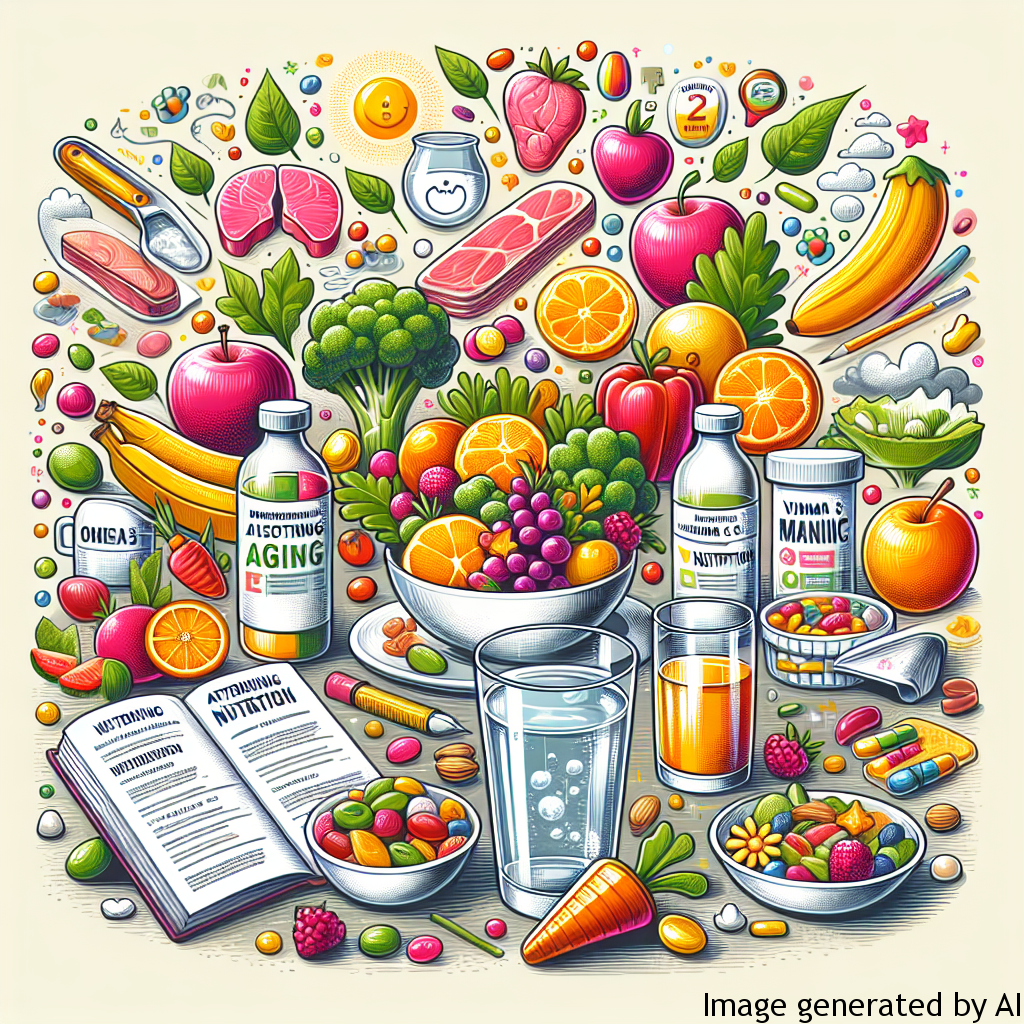Introduction
Aging is a natural process that is accompanied by various biological changes in the body. Decades of research have shown that a healthy diet can help counteract age-related changes. While genetics play a significant role in longevity, it is critical to understand the significant impact nutrition can have on our health, particularly as we age.
Understanding the Role of Nutrition in Age-Related Changes
Nutrition plays an undeniable role in maintaining the health of the aging population. The essential nutrients derived from a balanced diet help maintain a healthy immune system, sustain optimal body weight, and provide a multitude of health benefits.
Protein and Aging
As we age, muscle mass naturally declines, leading to frailty and decreased mobility. A high-protein diet helps promote muscle strength and mass in the presence of resistance-type exercises. Foods rich in proteins include meats, dairy products, nuts, and legumes.
Vitamins and Minerals
Vitamins A, C, and E have antioxidant properties that combat oxidative stress in the body, a significant contributor to aging. Incorporating foods rich in these vitamins, such as fruits and vegetables, is crucial. Additionally, minerals like calcium and vitamin D are vital for bone health.
Effects of Dietary Choices on Age-Related Changes
Unhealthy dietary choices like high intake of processed foods, sugars, and saturated fats can accelerate the aging process. These foods can contribute to weight gain, cardiovascular diseases, type 2 diabetes, and other chronic conditions. On the other hand, healthy dietary choices can enhance longevity and delay the onset of age-related diseases.
Strategies for Improved Nutrition with Ageing
Opt for a Nutrient-Rich Diet
Focus on nutrient-packed foods like lean meats, fish, whole grains, fruits, vegetables, and low-fat dairy products. These foods provide high amounts of nutrients without excessive calories.
Maintain Hydration
Dehydration can be common among older adults. It’s essential to consume adequate fluids, including water, low-fat milk, and sugar-free beverages.
Consider Dietary Supplements
Dietary supplements can cover nutrient gaps in the diet. Consult a healthcare provider before starting any supplement regime.
Conclusion
Proper nutrition is a powerful tool to combat age-related changes, maintain healthy body weight, minimize the risk of chronic diseases, and enhance the overall quality of life. Regardless of age, everyone can benefit from adopting healthier dietary habits. Introduction of gradual and sustainable changes can have a long-lasting impact on the well-being and longevity of individuals. Proper education and awareness about the importance of wholesome nutrition in aging must be disseminated. Remember, it’s never too late to make healthier food choices.

